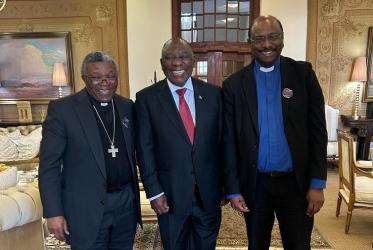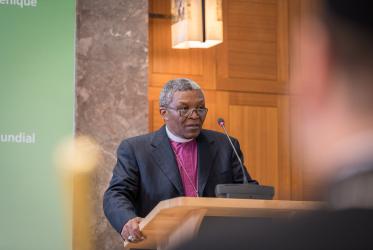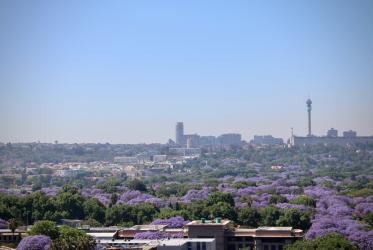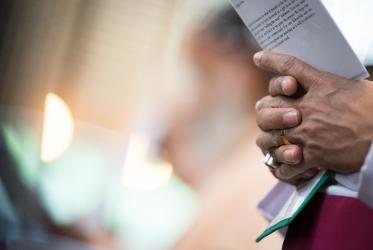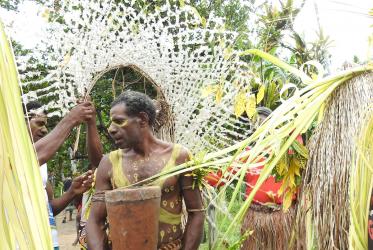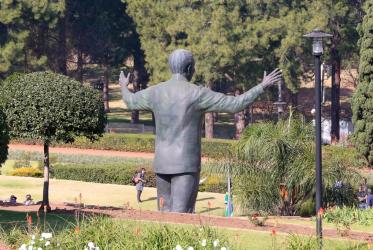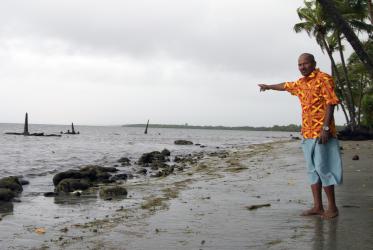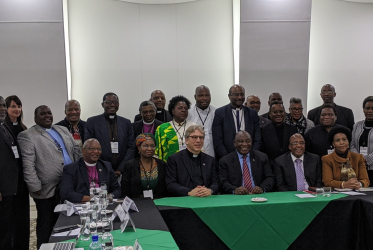Displaying 1 - 20 of 75
19 December 2023
World mourns loss of Archbishop Desmond Tutu
30 December 2021
WCC delegation meets with South African President Ramaphosa
09 December 2019
WCC mourns passing of Prof. Vuyani Vellem
09 December 2019
The cry of the Papuans in Indonesia
14 November 2019
Churches in southern Africa stand against violence, xenophobia
10 October 2019

